Commodore Abhay K. Singh
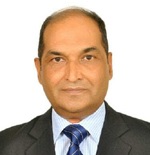
Bio: Cmde. Abhay K. Singh is a Research Fellow at the Military Affairs Centre in the IDSA, New Delhi. He is an Indian Navy veteran with extensive command and staff experience spanning 27 years. A surface warfare officer with a specialisation in Missile and Gunnery Warfare, he has commanded various naval platforms which include frontline frigate, submarine rescue & deep diving vessel, and fleet auxiliary. He has also served as Director (Military Affairs) in the Disarmament and International Security Division of the Ministry of External Affairs. Cmde. Singh is an alumnus of the Naval Academy, Defence Services Staff Course and Naval War College. His publications can be found in the Journal Maritime Affairs and various IDSA Commentaries.
Abstract:
India and the Idea of Indo-Pacific – A Hesitant Embrace?
Even though the geopolitics of the Indo-Pacific concept has historical roots, the contemporary discourse in the policy circles got momentum with Prime Minister Abe’s articulation about ‘Confluence of the two Seas’ in his address to Indian Parliament in August 2007. While India’s ‘Look East Policy’ had led to enhancement of her economic and strategic engagements beyond the Indian Ocean, there exists perceptible hesitation in embracing the ‘Indo-Pacific’ terminology in India’s policy articulation. The sources of this ambivalence can be discerned through wider strategic discourse in India around the geopolitical construct of the Indo-Pacific. Proponents argue that the embracement of the ‘Indo-Pacific’ is a logical extension of India’s ‘Look East Policy’. Sceptics, on the other hand, caution against India’s strategic overextension on peripheral regional security issues, identifying too closely with the United States, and receiving potential backlash from China. The paper therefore aims to thread both sides of the strategic debate around the relevance of the ‘Indo-Pacific’ geopolitical construct for India. It argues that the ‘Indo-Pacific’ regional construct provides the Indian policymakers a larger canvas to maximise India’s strategic gains.
Mr. Akira Igata

Bio: Mr. Akira Igata is currently a Visiting Professor at Center for Rule-making Strategies (CRS), Tama University, Japan. He is also a Senior Consultant at EY Advisory & Consulting and an Adjunct Fellow at Pacific Forum, a Honolulu-based think tank. He oversees the Economic Statecraft Program and takes part in the Cyber Security Program at CRS. He received his undergraduate training at Georgetown University (one-year exchange program, Heiwa Nakajima Foundation scholar) and International Christian University (Chris-Wada scholar). He subsequently received his MA in political science from Columbia University (Japanese government fellowship scholar). He was awarded the Aoi Global Research Award to study at the Faculty of Asian and Middle Eastern Studies, Cambridge University in 2016. His research interests include: Japanese security and foreign policies; Japan-U.S. alliance; Economic statecraft; and International politics in the Indo-Pacific.
Abstract:
East China Sea Dispute and Japan
The dispute surrounding the Senkaku (Diaoyu / Diaoyutai) islands has been described as a potential flash point in the East China Sea. How did these small uninhabited islands become a prominent international issue that involve world’s three largest economies? This paper first summarizes the history of how these islands rose to becoming a high-profile issue after decades of relative quiescence. Second, it reviews the claims and interests of each country and studies the latest developments surrounding the dispute. Third, the author analyzes how the dispute is related to and has an impact on the larger changing international environment, especially its impact on the increasing strategic competition between US and China. Lastly, the paper concludes with potential future scenarios and ways forward for mitigating the possibility of further conflict.
Dr. Alice Ekman

Bio: Dr. Alice Ekman is the head of China research at IFRI’s Center for Asian Studies. She is also an Associate Professor at Sciences Po in Paris. She specializes in China’s domestic and foreign policy, Taiwan and the Korean peninsula. Her research interests also include global governance, forum diplomacy and the evolution of think tanks.. Dr. Ekman was formerly a Visiting Scholar at Tsinghua University (Beijing), at National Taiwan Normal University (Taipei), and more recently at the Asan Institute for Policy Studies (Seoul). She is currently a member of the EU committee of the Council for Security Cooperation in the Asia Pacific (CSCAP) and provides China expertise to the European Union Institute for Security Studies (EUISS). She holds a PhD from Sciences Po in International Relations and Master from the London School of Economics in International Relations, Economics, and Anthropology (China focus).
Abstract:
China and the New Economic and Security Architecture in Asia: The 2025 Scenario
Xi Jinping’s coming into office marks an acceleration of initiatives regarding both regional economic and security governance. Hu Jintao (2002-2012) had already started to shape the framework of a neighborhood policy, to consolidate China’s participation in various existing multilateral regional mechanisms and position China as an active contributor to global governance reform in general terms. But China’s ambitions to reshape the regional and international order have never been as high as under President Xi Jinping’s leadership. Beijing seeks to significantly restructure the regional economic and security architecture, and sees the coming years as a key period to achieve results. According to China, the Asia-pacific region should not be based on any formal alliance system - and certainly not the US one, which it considers illegitimate. Of course, Chinese officials are fully aware that such restructuring can only be a long-term process, given the US’ overwhelming presence and influence in the region today, and China’s limited security ties with countries in the region so far. Still, the ultimate aim is to replace the US-led alliance system by a new structure which China sees more in line with its interests, and that has already been created. The paper will analyze this new structure in detail and assess its potential development and regional impact by 2025.
Prof. Amancio Jorge Silva Nunes de Oliveira
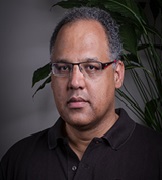
Bio: Prof. Amancio Jorge Silva Nunes de Oliveira is a Full Professor at the Institute of International Relations of the University of São Paulo (IRI-USP), and the scientific coordinator of CAENI (Center of Studies of International Negotiations). He was a public policy scholar at the Woodrow Wilson International Center for Scholars, vice-dean of the Institute of International Relations/USP and member of Institutional Advisory Committee of USP/IPSA Summer School on Methods.
Abstract:
Reorientation of Brazil’s Foreign Policy: Impact on BRICS
The pendulum of Brazilian foreign policy oscillated, in a period of only five years (2014-2019), from one extreme to the other. The pendulum movement began under the government of Dilma Rousseff (2014-2015), passed through the center-right government of Michel Temer (2016-2018) until arriving at a liberal-conservative government - Jair Bolsonaro (2019). The structural conditions of the international market, and thus the preference of the Brazilian private sector, did not change considerably. however, from the perspective of the Brazilian government, BRICS gradually lost the status of a revisionist coalition of global governance. The same thing happened, albeit in an even more pronounced way, with India-Brazil-South Africa (IBSA). The expected consequence is a misalignment between discourses of the private sector, government and the international coalition itself. The purpose of this article is to analyze the compatibility between the narratives of the Brazilian governmental and the private sector and to verify, from this convergence, the BRICS perspective. Conceptually, the three broad views on BRICS can be identified as optimistic, pragmatic and skeptical. The paper will use public opinion surveys of the general public and the private sector to provide an empirical basis for the analysis.
Dr Ashok K Behuria

Bio: Dr Ashok K Behuria is a Senior Fellow and Coordinator of the South Asia Centre at IDSA. He is a Ph. D. in International Relations from the Jawaharlal Nehru University, New Delhi, India. He joined IDSA in 2003 and before that he was working as Assistant Director at International Centre for Peace Studies, New Delhi. Dr Behuria has also been Editor of International Studies, the prestigious research journal from Jawaharlal Nehru University and has been on the Editorial Boards of Journal of Peace Studies and Strategic Analysis. He has taught at the University of Delhi and Jamia Millia Islamia, New Delhi. He is a recipient of the prestigious K Subrahmanyam Award for excellence in strategic studies for his work on Pakistan in 2009. He has published many research articles on strategic issues related to South Asian security environment in Indian and foreign journals and has edited several books on South Asia.
Abstract:
The Future of India-Pakistan Ties
The comprehensive dialogue process between India and Pakistan has been in a state of suspended animation for more than a decade now. It has been difficult to restart this process that had a reasonably successful run during 2004-2007. Indian analysts have argued that it has been primarily due to a series of spoiler-acts allegedly by non-state actors from the Pakistani side, beginning with the 26/11 Mumbai attacks and extending till the attacks in Uri and continuing ceasefire violations along the LoC and IB in Jammu and Kashmir. On the Pakistani side, the narrative is that India has stonewalled all attempts by Pakistan to restart dialogue and has not shown any serious intent to engage Pakistan meaningfully. Against this backdrop, the proposed paper will make an attempt to contextualise these separate arguments, trace the patterns that define India-Pakistan relationship, and analyse the reasons behind discontinuation of the earlier round of dialogues as well as failure to relaunch the process of engagement. Based on these analyses, the paper would build some scenarios about the state of India-Pakistan relations in the future.
Prof. Brahma Chellaney
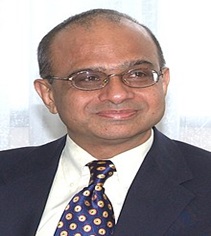
Bio: Prof. Brahma Chellaney is presently Professor of Strategic Studies at the Center for Policy Research in New Delhi; a Richard von Weizsäcker Fellow of the Robert Bosch Academy in Berlin; and an affiliate with the International Centre for the Study of Radicalization at King’s College London. He has served as a member of the Policy Advisory Group headed by the foreign minister of India. Before that, he was an adviser to India’s National Security Council, serving as convener of the External Security Group of the National Security Advisory Board. He also sits on a number of international organizational boards, including the academic council of The Henry Jackson Society, London, and the advisory boards of Worldcoo, Barcelona, and the European Centre for Energy and Resource Security (EUCERS) at the King’s College London. He is the author of nine books, including an international bestseller, Asian Juggernaut: The Rise of China, India, and Japan (Harper Paperbacks, New York, 2010).
Abstract:
Multipolarism: The Asian Debate
Security dynamics are changing rapidly in Asia. The region is home not only to the world’s fastest-growing economies, but also to the fastest-increasing military expenditures and naval capabilities, the fiercest competition over natural resources, and the most dangerous hot spots. The main driver of the changing security dynamics is China. However, just as European security over centuries was shaped by the equations among the powers of Europe, Asia has historically been a multipolar region. This reality has not fundamentally changed, for example, China, Japan and India constitute a major strategic triangle in Asia. In this scalene triangle with three unequal sides, China represents the longest side, Side A, Japan Side B and India Side C. In this triangle, if B and C join forces, A cannot hope to gain pre-eminence in Asia. In this light, how does China’s foreign-policy goal to make the mythical Middle Kingdom real square with Asia’s innate multipolarism? Asian powers like Japan, South Korea, Indonesia and India remain committed to multipolarism. Can the U.S.-led strategy for a “free and open Indo-Pacific,” help shore up Asian multipolarism? Is strategic equilibrium in Asia possible in the near term? Also, what will it take to build an inclusive, rules- based Asian order?
Dr. Brendon Cannon

Bio: Dr. Brendon Cannon is an Assistant Professor of International Security at the Institute of International & Civil Security, Khalifa University of Science & Technology in Abu Dhabi, UAE. He earned a Ph.D. in Political Science with an emphasis on International Relations at the University of Utah, USA (2009). His research interests include contextualizing domestic, regional and international relations in eastern Africa, regional security in the Gulf and western Indian Ocean region, the political economy of ports, bases and airports, as well as the Indo-Pacific strategy of India, Japan, the US and Australia in contrast with China’s BRI. He is the author of multiple articles and books, with publications appearing in African Security, Terrorism and Political Violence, The Journal of Strategic Security, and African Security Review.
Abstract:
Oil, Ports and Hard Power: Shifting Balance of Power in the Gulf and Horn of Africa
The Straits of Hormuz and Bab el-Mandeb form major maritime chokepoints for Gulf Oil and the shipment of vital goods to much of the globe. They are increasingly of interest to states such as India and China, where fast-growing economies are fueled, in part, by a steady supply of hydrocarbons from the Gulf. The strategic geographies stretching from Addis Ababa in the West to Tehran in the East have been the scenes of conflict in recent years such as the proxy struggle in Yemen between Iran and the Saudi-led coalition; the anti-piracy operations in the Gulf of Aden; as well as the scene of scrambling for economic and political resources. These security threats coupled with fast-growing economies, particularly in the Gulf and the Horn of Africa, as well as domestic political developments have led various states such as the UAE, Turkey, Iran and others to sign agreements around critical strategic infrastructure such as ports, airports and bases. The resulting military build-up, fueled by generous dollops of hydrocarbon aid, demonstrates shifting balances of power across the vast region spanning Western Asia and the Horn of Africa. While these developments have, until now, been largely positive, the possibility of future conflict, is a clear and present danger.
Dr. Elena Boykova

Bio: Dr. Elena Boykova is a Senior researcher, Institute for Oriental Studies, Russian Academy of Sciences. She specializes in Modern History and cultural development of Mongolia, Russian-Mongolian relations, Mongolia’s foreign policy, problems of security in North-East Asia. She graduated from the Moscow State Institute of International Relations (MGIMO), Ministry of Foreign Affairs. She holds Ph.D. (Hist.) from the Institute for Oriental Studies, RAS. She is the author of three books, more than 100 articles in Russian, Mongolian, English and Japanese, editor-in-chief of more than 10 books. She is a member of the International Association for Mongol Studies, of the Permanent International Altaistic Conference (PIAC), of the Mongolia Society (USA), of the China-Mongolia-Russia Think Tank “China-Mongolia-Russia Economic Corridor”, a member of the Presidium of the Russian Society of Mongolists. Dr. Boykova received the Polar Star Decoration (highest award for non-Mongol citizen) in 2016 and an Honorary Doctorate Degree from the Institute of International Affairs of the Mongolian Academy of Sciences in 2018.
Abstract:
The Russian Vision of BRICS in the Context of a Multipolar Order in Asia
Creation of BRICS has become one of the most significant geopolitical events of the beginning of the 21st century. Rather shortly, this association turned to the factor that seriously influences political and economic life of the world. BRICS is essentially a new approach to reforming the system of world regulation, which in the course of time can become another pole of political influence. Russia regards this association as an important platform for discussing international politics and world economy and considers strengthening of its position in the world as one of important goals. Currently, BRICS represents a dialogue format that provides the five countries with the opportunity to cooperate in different fields, at the same time maintaining “freedom of action” for them. The possibility of turning BRICS to a political union or an economic organization is not considered yet. At the same time, Russia regards it is expedient to formalize the BRICS group by way of creating a virtual secretariat, and subsequently — a permanent secretariat with headquarters in one of the member countries. In the situation of serious complexities in Russia’s relations with the West, strengthening of the anti-Russian sanctions policy, our country is interested in expanding interaction and closer integration with the BRICS countries. Participation in BRICS gives Russia an opportunity to strengthen its position on the world stage.
Mr. Endy Bayuni
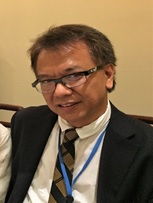
Bio: Mr. Endy Bayuni is the senior editor of the English-language daily newspaper The Jakarta Post. A 35-year veteran in journalism, he was the editor-in-chief of the newspaper from 2004-2010 and from 2016-2018. He has also had stints with Reuters and Agence France Presse as their Indonesia correspondent. His opinion columns, including those on Indonesia’s foreign policy, have regularly appeared in national as well as international media outlets, including The Jakarta Post, Strait Times of Singapore and New York Times. He is a recipient of the East West Center senior fellowship in Washington DC (2010), the Nieman Fellowship at Harvard University (2004) and the Jefferson Fellowship at the East West Center in Honolulu (1999).
Abstract:
Indonesia’s Rise: with or without BRICS
Indonesia, which has risen to the rank of a middle power in the last 20 years, will be the obvious first candidate to join BRICS if and when it expands its membership. The growing economy is the world’s fourth most populous nation. If BRICS is about pushing for global reforms, Indonesia’s inclusion will strengthen its hand. Indonesia brings in another factor when it comes to civilizational dialogues: Islam. The country with the largest Muslim population has proven that Islam and democracy are complimentary. Indonesia has a long track record in diplomatic achievements, dating back to the Bandung Conference of 1955, which later led to the establishment of the Non-Aligned Movement in 1961. Indonesia hosted the long negotiations to end the war in Cambodia before the warring factions signed the peace deal in Paris in 1991. As the largest member of the Association of Southeast Asian Nations (ASEAN), Indonesia is staking its claim as a maritime power and a key player in the emerging Indo-Pacific regional architecture. With or without BRICS, Indonesia is building its strength and reputation, engaging in multilateral organizations like ASEAN, G-20, APEC, OIC, IORA and MIKTA. Indonesia has a chance to show its diplomatic mettle as a non-permanent member of the UN Security Council in 2019-2020.
Dr. Ha Anh Tuan

Bio: Dr. Ha Anh Tuan is a Senior Researcher and Director of Center for Policy Analysis of Bien Dong Maritime Institute, the Diplomatic Academy of Vietnam. Dr. Tuan’s research interests include international security of the Asia-Pacific, with special focus on maritime security and international relations in the South China Sea. He has authored or co-authored a number of researches, including Vietnam’s South China Sea Policy since 2007 in Le Hong Hiep and Anton Tsvetov (ed.), Vietnam’s Foreign Policy under Doi Moi, 2018; & Vietnam’s Regional Security Challenges in Abhijit Singh (ed.) Line in the waters: The South China Sea dispute and its implications to Asia, 2016; Navigating through troubled waters: A Vietnamese Perspective on Sino-Vietnamese relations in the South China Sea, 2016; The tragedy of Vietnamese fishermen: The forgotten faces of territorial disputes in the South China Sea, 2013; ASEAN and the disputes in the South China Sea in Dang D. Quy (ed.), Disputes over the South China Sea: Law, geopolitics, and international cooperation, 2012. He is also a frequent media commentator.
Abstract:
Future of South China Sea Dispute: A Vietnamese Perspective
With many maritime security challenges remain unresolved, the future of the South China Sea is uncertain. Sovereignty disputes over structures in the Paracels and the Spatlys and overlapping claims of sovereign rights over bodies of waters in the South China Sea among litoral states are still the fundamental and root causes of disputes in the region. Emerging issues such as major powers’ competition - most notably between China and the US, maritime environmental degradation, and rapid fish stock depletion have added more burden to regional governments. Technological advancements will also bring about diversed implications in the South China Sea. On the one hand, regional maritime domain awareness is significantly improved, allowing litoral states and other stakeholders to better understand of maritime situation in real time. On the other hand, states’ improved capabilities would make the South China Sea narrower and increase the frequency of encouters between actors from different countries, thus raise the risk of conflicts in the region. A common understanding between regional countries about rule-based order must be developed in order to effectively manage disputes in the South China Sea.
Mr. Hekmat Khalil Karzai
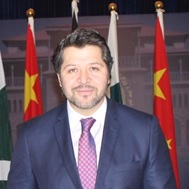
Bio: Mr. Hekmat Khalil Karzai became the Chairman of the Centre for Conflict and Peace Studies in January 2019. He served as the Deputy Foreign Minister of Afghanistan from January 2015 to October 2018. At the Ministry of Foreign Affairs, he chaired several national and international processes/forums including Heart of Asia - Istanbul Process, Regional Economic Cooperation Conference for Afghanistan (RECCA), and International Contact Group (ICG) amongst others. He led the Afghan delegation in the first face-to-face talks with the Taliban in July 2015 and at the Quadrilateral Coordination Group meetings, creating an enabling environment for the Afghan peace process. In 2006, Mr Karzai founded the Centre for Conflict and Peace Studies (CAPS), one of the first think tanks in Afghanistan. He also serves as non- resident Senior Fellow at the East West Institute in Brussels. In the past, he has served as an International Fellow at the Edmund Walsh School of Foreign Service, Georgetown University and the Head of the Political Department at the Embassy of Afghanistan in Washington, DC.
Prof. Hideshi Tokuchi
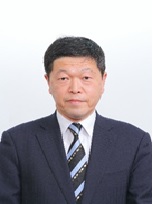
Bio: Prof. Hideshi Tokuchi joined the Defense Agency (the predecessor of the Ministry of Defense) of Japan in 1979 and served as the nation’s first Vice-Minister of Defense for International Affairs from July 2014 until he retired from the Government in October 2015. In the Ministry of Defense he served as the Director-General of four bureaus: Operations; Personnel and Education; Finance and Equipment; and Defense Policy. He taught Japan’s national security policy as a visiting professor at National Graduate Institute for Policy Studies (GRIPS) from 2002 to 2015. He is a Senior Fellow of the Institute, and also a Visiting Professor of National Defense Academy now. Professor Tokuchi was born in 1955. He received his Bachelor of Laws degree from the University of Tokyo in 1979, and his Master of Arts in Law and Diplomacy (M.A.L.D.) degree from the Fletcher School of Law and Diplomacy in 1986.
Abstract:
Achieving a Free and Open Indo-Pacific through the Quad Framework: A Japanese Perspective
The Free and Open Indo-Pacific (FOIP) is not an institution but a strategic concept, one that is only just emerging. Therefore, the scope of Indo-Pacific - both in geographical and policy terms - remains different; depending on which country is promoting the concept. The first point of the paper concerns the strategic and geopolitical facets of FOIP and its importance in maintaining the rules-based liberal regional order, as seen from a Japanese perspective. The second point relates to the significance of Quad in operationalizing the vision of FOIP. FOIP is a tool of both competition and cooperation in relation with countries of different visions and regimes, such as China, even in regional security terms. Finding the right balance of competition and cooperation is a serious challenge to all in the region. In this regard, how can Quad fit into the overall picture of FOIP? Could the minilateral framework of Quad have a possibility to become a promising foundation of a wider multilateral framework (a Quad-plus?) to make the order robust and stable? The paper tries to explore the possibility of such an enlargement in the FOIP context.
Dr. Hu Xiaowen

Bio: Dr. Hu Xiaowen is an Associate Professor in the Institute of Indian Studies, Yunnan University. She worked in Yunnan Academy of Social Sciences from 2010 to 2018. She got her PhD degree from the Centre for East Asian Studies of Jawaharlal Nehru University in September 2017, and currently is the China India Scholar-Leader Fellow at India China Institute of The New School, New York, US. Her research focuses on Indian foreign policy, Indian think tanks, BCIM and China-India Relations. She is the co-editor of the volume One Belt One Road: China’s Global Outreach, Pentagon Press, New Delhi, 2017. Her works have been published in Global Review, Academic Forum, Chinese Social Sciences Weekly, Southeast and South Asian Studies, etc.
Abstract:
China's BRICS Vision and the Asian Order
When the concept of BRICS was created in 2001 by Jim O'Neill, it endowed BRICS a sub-government characteristic. BRICS now has expanded from an economic-centric dialogue to a pragmatic and comprehensive multi-national cooperative mechanism. It is important not only because it includes the main driving forces of global economic development, but because it promotes “inclusive improvement” of the current global governance system. With the establishment of BRICS Development Bank and the Contingent Reserve Arrangement, the institutionalization of BRICS cooperation has grown and helped the association legitimize its rise and promote international and regional cooperation.
From China’s perspective, the BRICS does not aim to challenge the current international regime, instead its objective is to adjust the international regime in a non-confrontational way. It is trying to reform the system of governance gradually in the context of accepting the existing rules. Furthermore, BRICS aims to forge a bigger global voice on economic issues for the group. It is necessary to build up an institutional framework based on mutual cooperation, and urge the existing international institutions to make changes favouring the emerging economies. Thus, it can be understood that BRICS cooperation mechanism is a useful supplement to the existing international regime which can drive Asia towards a multipolar world order.
Prof. J Mohan Malik
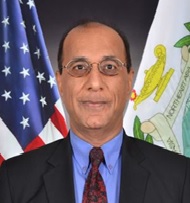
Bio: Prof. J Mohan Malik is Professor of Asian Security at the Daniel K. Inouye Asia–Pacific Center for Security Studies in Honolulu. His areas of expertise are Asian geopolitics, China and great power competition, nuclear and maritime security. He is the author and/or editor of several books, most recently Maritime Security in the Indo-Pacific (2014) and China and India: Great Power Rivals (2011). Dr Malik has contributed numerous book chapters and published nearly 200 articles in journals such as Asian Affairs, Asian Survey, Arms Control, China Quarterly, China Brief, Jane’s Intelligence Review, Journal of Contemporary China, Orbis, Pacific Affairs, The American Interest, and World Policy Journal. His op-eds have appeared in Wall Street Journal, International Herald Tribune and The Diplomat. Dr Malik has testified before the U.S.–China Economic and Security Review Commission, and done consultancy work for the Australian Department of Defence and Booze Allen Hamilton.
Abstract:
Maritime Security in Indo Pacific: An American Perception
The coming years in the Indo-Pacific are fraught with risks—this is where some powerful states are forging new alliances, arms racing, pursuing mercantilist policies, extracting resources, and engaging in containment of peer competitors. New strategic balances will emerge as partnerships among states shift. Faced with an aggressive China, Asia’s major maritime powers—Japan, Australia and India—have come together to work in synchronized manner with the United States. They enjoy the support of middle powers—to varying degrees—to defend a rules-based order that does not advantage powerful nations at the expense of weak states. A complex web of security relationships is beginning to emerge - in trilateral, quadrilateral and multilateral formats. China’s investments in littorals under its Maritime Silk Road are more about Beijing’s desire to establish itself as a “resident power” in the Indian Ocean. Ironically, China’s quest for resources, markets, and bases (RMB) and attempts to establish an empire of “exclusive economic enclaves” run by Chinese conglomerates to usher in the age of Pax Sinica is now bringing former European imperial powers back in the Indo-Pacific oceans to maintain a rules-based order. This paper argues that the Quad, still in its embryonic stage, may need to be made an iQuad (“inclusive Quad”) or “Quad Plus” and further reinforced with a Concert of Democracies (COD) comprising Canada and the European Union.
Dr. Jagannath Panda
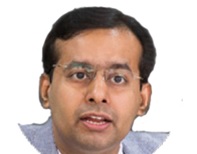
Bio: Dr. Jagannath Panda is a Research Fellow and Coordinator of the East Asia Centre at IDSA, New Delhi. He is in charge of East Asia Centre’s academic and administrative activities, including Track-II and Track 1.5 dialogues with Chinese, Japanese and Korean think-tanks/institutes. He is a recipient of the V. K. Krishna Menon Memorial Gold Medal (2000) from the Indian Society of International Law & Diplomacy in New Delhi. Dr. Panda is the author of India-China Relations: Politics of Resources, Identity and Authority in a Multipolar World Order (2017), China’s Path to Power: Party, Military and the Politics of State Transition (2010). He has edited two volumes: China’s Transition under Xi Jinping (2016), India-Taiwan Relations in Asia and Beyond: The Future (2016), and have co-edited two volumes Towards a New Asian Order (2012), Revisiting Contemporary South Asia: Politics, Economics and Security (2012). Dr. Panda is a Member of the Editorial Board of the Journal of Asian Public Policy (Routledge). He is a non-Resident Fellow (honorary) at the Institute for Security and Development Policy (ISDP), Sweden, and also affiliated (honorary) to the Institute of Transnational Studies (ITS), Germany/Italy.
Abstract:
Why AIIB, and Why Not BRI? Understanding India’s Perspective on a China-envisioned Regional Construct
Clarity still lacks in the public domain as to why India agreed to become a founding member of the Chinese-backed Asian Infrastructure Investment Bank (AIIB), but did not support Beijing’s flagship Belt and Road Initiative (BRI) given that both are China-centred international economic initiatives. India’s differing standpoint becomes more perplexing when the Chinese leadership advocates the AIIB and the BRI in the context of reshaping a new international order and building a “community of shared future”, a popular “diplospeak” of Xi Jinping. The Indian perspective is rather straightforward: the AIIB is a multilateral economic initiative which India promotes; while the BRI is a state-sponsored global economic strategy that challenges India’s national security interests in the neighbourhood. While this assertion is certainly pertinent, India’s approach to China-backed initiatives is in the broader and deeper context associated with the emerging powers narrative of India-China relations – it signifies a stance that is fast evolving with regard to Chinese assertion and China-envisioned regional construct. A careful appraisal of India’s approach towards it rather elucidates an Indian standpoint on the Chinese envisioned regional construct that is associated to their post-Cold War emerging power trajectory. This paper examines India’s stance on China-backed connectivity initiatives by analysing New Delhi’s differing approach towards “China-centred” grand initiatives - the AIIB and the BRI, and if it has changed over time.
Admiral (Dr.) Jayanath Colombage
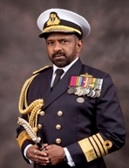
Bio: Admiral (Dr.) Jayanath Colombage is a former chief of Sri Lanka navy who retired after an active service of 37 years as a four-star Admiral. He is currently the Director of the Centre for Indo - Lanka Initiatives of the Pathfinder Foundation, Colombo. He is also a Fellow of Nautical Institute, London, UK and a Guest Professor at Sichuan University and Leshan Normal University in China. He is a highly decorated officer for gallantry and distinguished service. He is a graduate of Defense Services Staff College in India and Royal College of Defense Studies, UK. He holds a PhD from General Sir John Kotelawala Defense University, Colombo. He also holds an MSc in defense and strategic studies from Madras University and MA on International Studies from Kings College, London. He was the former Chairman of Sri Lanka Shipping Corporation and an adviser to the President of Sri Lanka on maritime affairs.
Abstract:
Sri Lanka and Maritime Security Order in the Indian Ocean
The Indian Ocean is the third largest ocean in the world and has become a major strategic attraction in the 21st century. This is also a region of geo-strategic competition with major naval powers focusing their attention to this region, leading it to become heavily militarized. The main reason for this renewed attention is the rise of China, economically and militarily. China has made large investments through its Belt and Road Initiative across the Indian Ocean. Sri Lanka is blessed with deep water ports and is located in close proximity to the busiest east-west sea lane of communication across the Indian Ocean. Since the nearly three decade long armed conflict ended in May 2009, the country has been put on a fast-track for development. To accomplish this, there was a need to build highways, roads, ports, airports and power plants. China thus became the main development partner even as it faced accusations of having strategic and military expansionist objectives. There are many strategic initiatives for Indian Ocean and Sri Lanka is sandwiched in the midst these initiatives. In the light of these developments, this paper will look at how Sri Lanka can play a role in maintaining a rules-based maritime order.
Dr. Ji Yeon-jung

Bio: Dr. Ji Yeon-jung, Ph.D., is a lecturer at Hankuk University of Foreign Studies, Seoul, and a visiting fellow at the Institute of Indian Studies, Seoul. She is a former assistant secretary of the Korean Society for Indian Studies and Stanton Nuclear Security postdoctoral fellow at the Belfer Center for Science and International Affairs, Harvard University. She studies nuclear proliferation and weapons programs in South Asia.
Abstract:
Denuclearization on Alert: Reshaping Security Order in the Korean Peninsula
This paper deals with key questions concerning North Korea’s denuclearization process and its implications for regional security order. For the last three decades, Pyongyang’s nuclear weapons program has been one of the most challenging issues faced by the nuclear non-proliferation regime. The ongoing debates on denuclearizing Pyongyang appear to be determining a new pattern of political bargaining that not only calls for at-one-go denuclearization but also aims to reshape the security order in the Korean Peninsula, including the end-of-war declaration. With a more practical approach than before, the key players—the U.S., South Korea, and North Korea—have started anew to work toward a deal. Before a mechanism to hold all members in more stringent compliance can be determined, three questions must be examined: First, what technological barriers do the contracting parties need to consider? Second, how long will the process take? Third, what other factors relevant to reshaping the security order might follow? This paper suggests some of the possibilities that would facilitate the bargaining process.
Dr. Jingdong Yuan

Bio: Dr. Jingdong Yuan is an Associate Professor and Chair of the Department of Government and International Relations, University of Sydney. Dr. Yuan’s research focuses on Indo–Pacific security, Chinese foreign policy, Sino–Indian relations, and nuclear arms control and non-proliferation. He has held visiting appointments at the National University of Singapore, University of Macau, East–West Center, National Cheng-chi University, Mercator Institute for China Studies, Fudan University, and Berlin Social Sciences Centre (WZB). He is the co-author of Chinese Cruise Missiles: A Quiet Force-Multiplier (2014) and China and India: Cooperation or Conflict? (2003), and co-editor of Australia and China at 40 (2012). His publications have appeared in Asian Survey, Australian Journal of International Affairs, Contemporary Security Policy, International Affairs, International Journal, Journal of Contemporary China, Journal of International Affairs, Nonproliferation Review, Washington Quarterly, and in many edited volumes. He is currently working on a book manuscript on China–South Asian relations.
Abstract:
Beijing’s Vision of the Asian Order: Promoting a Community of Shared Future
Beijing is promoting a post-Cold War Asian order advocating multipolarity and inclusiveness. China under Xi Jinping has presented an Asian order of cooperative security, common security, comprehensive security, and sustainable security. It has argued that future Asian security architecture requires the participation of all concerned, must be based on consensus and mutual trust, and provide security and benefits for all. This order emphasizes the importance of economic cooperation and integration as conducive to the development of a community of common destiny. It advocates multipolarism and calls for dialogue in addressing security issues and non-traditional security challenges. It promotes a new Asian security architecture that is inclusive, cooperative, and win-win, with states—big and small—in the region encouraged to engage in dialogues in pursuit of a new type of international relations. By promoting a different security discourse, that places less emphasis on military alliances and security against potential adversaries, Beijing’s vision of ‘Asian order’ is built on a new security concept that is both more comprehensive in its content (economic as well as security issues) and its format (partnerships and diversity).
Dr. John Hemmings

Bio: Dr. John Hemmings is Director of the Asia Studies Centre and Deputy Director of Research at the Henry Jackson Society and an Adjunct Fellow at the Centre for Strategic and International Studies. Prior to his doctoral studies, he was a visiting fellow at Pacific Forum and a research analyst at the Royal United Services Institute in Whitehall. He regularly provides briefings to a number of government departments and contributes political analysis to various media from time to time, including the BBC, the Telegraph, Fox News, CNN among others. He has also published academic work in International Affairs, the RUSI Journal and International Politics Review, and was a Deputy Editor at the LSE’s flagship Millennium Journal of International Studies between 2013 and 2014. Dr. Hemmings completed his doctoral thesis in International Relations at the London School of Economics.
Abstract:
United Kingdom’s Foreign Policy and Indo Pacific Security
While it is true that Brexit will present the UK with many challenges, it is also a unique opportunity to recast its place in the world. While Britain will remain committed to their NATO allies in order to defend Europe from Russian revanchism, it will be better suited to adapt to global trends and challenges. The Global Britain policy has characterized UK foreign policy since the Brexit Referendum, and it guides UK foreign policy-making bureaucracy in Whitehall in the FCO, MOD, and DIT. So, how does this policy connect with changes in the Asian region? The global trade is going to Asia, and if Britain is to react to this shift in geo-economics and geopolitics, it will have to enhance its presence in the region. The global middle class is expected to grow by 40-50 per cent, with 80 per cent taking place in China and India. However, it should be noted that going to the Indo-Pacific at this time presents Global Britain with challenges in the geopolitical sphere, as Asian powers like China seek to change the rules arbitrarily. While it is clear that rising power changes mean that the rules must be re-written, they should be done collectively, without excluding rising powers like India. Therefore, Britain looks to India, Australia, Japan, and other regional powers in ASEAN – as well as China. Britain is at the cusp of redefining its relationship with the world, but it must settle whether it will adopt a policy that incorporates UK values, with its national interests in the security and trade spheres.
Mr. Mandla Rametsi

Bio: Mr. Mandla Rametsi joined the Department of International Relations and Cooperation in 2007 and was placed in the Policy, Research and Analysis Unit. From 2011 to 2015, he was the Vice Consul General of South Africa in Lubumbashi, Katanga, the Democratic Republic of Congo. In 2016 he returned to the Head Office to focus on global governance issues related to counter-terrorism, UNSC as well as Transnational Organised Crime. In 2019 he was appointed Counsellor Political, Multilateral and Economic Diplomacy in the South African High Commission to focus on BRICS, IBSA, IORA, G20 and other multilateral institutions. Mr. Rametsi is currently pursuing his PhD with the University of Witwatersrand in Johannesburg, South Africa. He speaks French and Swahili fluently.
Abstract:
The Future of BRICS: A South African Perspective
The 10th BRICS Summit in Johannesburg occurred with significant domestic economic and political changes among the BRICS countries’ national interests. This year Brazil is hosting the BRICS; it has a new government, that has assumed office at the same time South Africa handed over the BRICS presidency. As Brazil’s political class has become embroiled in the 2014 Lava Jato (car wash) investigation, Brasilia’s interest in the BRICS over the past years has gradually waned. However, as Brazil is preparing to host the second regional centre of the New Development Bank (NDB), the new government may use the BRICS as an opportunity to establish itself as an important Southern power.
The BRICS so far have been able to focus largely on their converging interests – intra-BRICS economic cooperation; harnessing the dividends of the Fourth Industrial Revolution (4IR); and maintaining a peaceful and prosperous global order. Shaping a more just, equitable and stable global order will continue to bind the BRICS. As growing nationalism and protectionism in developed countries threaten to derail the post-WWII order, ensuring that global governance institutions such as the International Monetary Fund, the World Bank, the United Nations and the World Trade Organization reform themselves is important for their longer-term efficacy. As their share of global economic and political power has increased, so too has their interest in how the global system shapes up. Coordinated BRICS positions within these institutions will be essential if there is to be meaningful reform.
Dr. Manoj Joshi

Bio: Dr. Manoj Joshi is a Distinguished Fellow at the Observer Research Foundation. He is a journalist who has specialised in foreign and security policy in the years he has worked with The Times of India, The Hindu, The Hindustan Times and the India Today Group. He is a regular columnist and commentator in the Indian media. In 2011 he was appointed by the Government of India to the Task Force on National Security chaired by Mr Naresh Chandra to propose reforms in the national security system of the country. He has been a member of India’s National Security Advisory Board and has authored two books on Kashmir as well as several papers and chapters in scholarly works on South and South-east Asia. He is a PhD from the School of International Studies (SIS), JNU and has held visiting appointments in several universities. He is a regular speaker at defence institutions in India as well as think tanks in India and abroad.
Abstract:
India and the terrorism-military nexus in South Asia
This relates principally to Pakistan. From the outset, Pakistan has sought “effective” parity with India. We say “effective” because India is nearly four times larger in size, has a population more than six times larger and a GDP which is 9 times higher. To this end, Pakistan has used four strategies—first, it has spent a larger proportion of its national resources on defence. In the 2003-2017 period, while India’s expenditure amounted to roughly 2.5 per cent of its GDP, Pakistani figures hovered half a percentage point if not more higher. In the 1988-2002 period, while India’s expenditures were around 3 per cent, Pakistan’s were 5.5 per cent or so. Second, Islamabad has cultivated foreign alliances. That with the US, for example, enabled it to have a force profile of sufficient strength to challenge India in 1965. Third, Pakistan has developed nuclear weapons. Popular belief is that the Pakistani programme reacted to that of India, but there is enough evidence to show that it had autonomous indigenous drivers. Fourth, Pakistan has used and continues to use the instrumentality of terrorism to destabilize India. It is this last instrumentality that is of interest in this presentation. As can be seen, all four strategies relate to the military. It is not surprising that they are, indeed, driven by the military which has assumed the lead role in the Pakistani state.
Prof. Mirzokhid Rakhimov

Bio: Prof. Mirzokhid Rakhimov is the head of the Social-humanities branch of Academy of Sciences in Uzbekistan. He is also the director of Contemporary History Center. His scholarly interests cover contemporary history, regional and international relations in post-Soviet Central Asia. His recent selected publications include: Contemporary Central Asia: Balancing Between Chinese and trans-Asian Silk Road Diplomacy (2018), 25 Years of Independence—Uzbekistan (2017), Central Asia, Issues, Problems and Perspectives (with S. Jonboboev and R. Seidelmann, 2015) and South and Central Asia: Insights and Commentaries (with A. Sengupta, 2015).
Abstract:
Shanghai Cooperation Organisation (SCO) and the Future of Regional Integration in Central Asia
Regional cooperation and integration are among the most important trends in contemporary international relations. In the post-Soviet period, there are challenges, similarities and contradiction of multilateral relations in Central Asia. These are reflected in the numerous organisations such as Commonwealth of Independent States (CIS), Collective Security Treaty Organization (CSTO), Eurasian Economic Union (EEU), Shanghai Cooperation Organisation (SCO), Economic belt of Silk Road, C5+1, the EU strategy, Central Asia plus Japan, Central Asia – Republic of Korea and others. Among them, SCO has gone through institutional transformations and is presently one of the active initiatives in Central Asia. But in analysis, regional institutions must take into account particular local and regional situations, the internal and regional economies, cultures, and politics of the region. This is important because current and future Central Asian transformation will be prompted by interlinking local, regional, trans-regional and global issues and challenges.
Ambassador (Dr.) Mohan Kumar
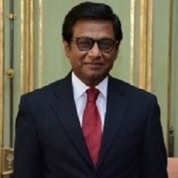
Bio: Ambassador (Dr.) Mohan Kumar is the Chairman of Research and Information System for Developing Countries (RIS) since June 2018. He also teaches at the Jindal School of International Affairs and is Vice-Dean & Professor of Diplomatic Practice. He has had an outstanding career in the Indian Foreign Service lasting 36 years which culminated in his being India’s Ambassador to France. Under his watch, the Indo-French strategic partnership was strengthened in spheres such as defense, space, solar energy, smart cities and investment. Earlier, Mohan Kumar was India’s Ambassador to the Kingdom of Bahrain where he witnessed and dealt with a strategically complex region characterized by events such as the “Arab Spring” Ambassador Kumar has enormous expertise in the area of international trade - he was India’s lead negotiator first at the GATT (General Agreement on Tariffs and Trade) and then at the WTO (World Trade Organization). He was a leading member of India’s delegation at the WTO Ministerial Conferences held in Marrakesh (1994), Seattle (1999) and Doha (2001). Ambassador Kumar is author of a book titled Negotiation Dynamics of the WTO: An Insider’s Account (2018).
Abstract:
Free Trade Agreements (FTAs) and Asia’s Multipolarism
There is something profound that has happened in the world of international trade over the last decades. This period has seen the exponential rise in FTAs or what in the GATT/WTO parlance is known as Free Trade Areas or Free Trade Agreements. As the economic centre of gravity has shifted to the East (read Asia) it was but natural that the key players of Asia should also enter into FTAs. The lead in this regard was taken by ASEAN and then Japan, who now has now got a large network of FTAs, including with the European Union. Moreover, it is now spearheading the revised TPP Agreement as well. China, not to be left behind, has also done a series of FTAs especially with ASEAN, Korea and Australia, totalling as many as 24 FTAs. Where does all this leave India? India has FTAs with ASEAN, Korea and Japan, but the experience has been mixed. With the RCEP, Asian FTAs could well encounter a major turning point. The million dollar question is when the RCEP will be concluded, what implications it will finally have for India, China and more crucially for Asia.
Prof. Peter Drysdale

Bio: Prof. Peter Drysdale is Emeritus Professor of Economics in the Crawford School of Public Policy, Australian National University. He is widely acknowledged as the intellectual architect of APEC. He was the founding head of the Australia-Japan Research Centre. He is the author of many books and papers on international economic policy in East Asia and the Pacific, including the prize- winning, International Economic Pluralism: Economic Policy in East Asia and the Pacific. He advised on the Australian Government’s Australia in the Asian Century White Paper. He is recipient of the Asia Pacific Prize, the Weary Dunlop Award, the Japanese Order of the Rising Sun with Gold Rays and Neck Ribbon, the Australian Centenary Medal, the Japan Foundation Prize, the Asian Cosmopolitan Prize among others and an Officer of the Order of Australia. He is Editor-in-Chief of East Asia Forum and Head of the East Asian Bureau of Economic Research.
Abstract:
Australia, the Indo-Pacific Idea and a Multipolar Order
Getting foreign policy right at this point in world diplomatic history has never been more difficult. Wedged between its alliance relationship with the United States — vastly complicated as it has been by the advent of President Donald Trump — and its hugely important economic relationship with China, this is especially so for Australia. Just over a year ago the Australian Government’s Foreign Affairs White Paper adopted the Indo-Pacific idea but neither tested nor defined it, except geographically, although the Department of Foreign Affairs and Trade afterwards reorganised itself around a core Indo-Pacific Group. It is difficult to see that the structural reorganisation has had any significant impact on foreign policy strategy in the year since it was initiated. The understanding of what the Indo Pacific idea meant and how it was supposed to re-shape Australian diplomacy in the White Paper has yet to be resolved. There remains deep confusion about how it cuts across Australia’s core interests in the region — in Southeast Asia, with China, in relation to all of its primary regional arrangements and even its relationship with India. Australia should be wary about advocacy of some grand new regional strategy to meet the challenges it now faces.
Prof. Renato Cruz De Castro
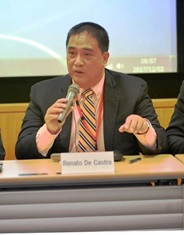
Bio: Prof. Renato Cruz De Castro is a professor in the International Studies Department, De La Salle University, Manila. He is currently is the chair-holder of the Dr. Aurelio Calderon Chair in Philippine-American Relation. He was a visiting fellow in the National Institute for Defense Studies (NIDS) of the Japanese Ministry of Defense in 2018. In 2017, Professor De Castro was at the Japan Institute of International Affairs (JIIA) as a visiting research fellow. In 2016, he was also based in East-West Center in Washington D.C. as the U.S.-ASEAN Fulbright Initiative Researcher from Philippines. He is an alumnus of the Daniel Inouye Asia-Pacific Center for Security Studies in Hawaii, U.S.A. In 2009, he became the U.S. State Department ASEAN Research Fellow from the Philippines and was based in the Political Science Department of Arizona State University. He has written over 100 articles on international relations and security that have been published in a number of scholarly journals, monographs, and edited works in various countries.
Abstract:
Philippines and Maritime Security Order in Southeast Asia
This paper examines how the Duterte Administration is trying to uphold the regional maritime security order by pursuing an appeasement policy vis-à-vis an emergent China. Since he became president in 2016, he had untangled his predecessor’s geo-political agenda in the South China Sea dispute. Former President Benigno Aquino III pursued a balancing policy on China’s maritime expansion in the South China Sea. President Duterte however, has distanced his country from the U.S by terminating joint Philippine-U.S. naval patrols in the South China Sea; limited the scope and reduced the number of interactions between the Philippine and U.S. militaries; and also threatened to unilaterally abrogate the Enhance Defense Cooperation Agreement (EDCA). However, recent developments indicate that his appeasement policy has not prevented China from altering the regional status quo and instead, has caused internal division in Philippine society. In conclusion, this paper warns President Duterte’s policy of fostering closer economic and diplomatic relations with China has not generated his expected result of increased flow of Chinese official development assistance (ODA) to the Philippines and instead, has created a political divide in Philippine society.
Mr. Rohan Masakorala

Bio: Mr. Rohan Masakorala is currently the CEO of the Shippers’ Academy Colombo and the Chairman of the National Exports Strategy on logistics to the Export Development Board of Government of Sri Lanka. He also serves as an independent shipping, commerce consultant, writer, columnist and an international speaker. Mr. Masakorala is a UNESCAP certified trainer on global supply chain and logistics and have served/serving as secretary general to many industry intuitions. A former chairman of the Sri Lanka Shippers’ Council & Association of Shipper’s Council of Bangladesh, India, Pakistan & Sri Lanka (ASCOBIPS), he served as the first Secretary General of the Asian Shippers’ Council representing 16 countries in Asia. He has been a working group member of Global Shippers’ Forum and the International Chamber of Commerce on trade terms. He is an honors graduate in Economics with a second major in Business Administration & Marketing from Connecticut State University, USA.
Abstract:
Global Commerce and the Sea Lines of Communication (SLOCs) in Indian Ocean: A Sri Lankan Perspective
The population on planet earth is stated to reach 9.9 billion within the next three decades. Simply, this means that governments and nations across the planet will have to continue to find mechanisms to grow and sustain economies to manage the growth in demand for consumption and to maintain or improve sustainable life styles whilst simultaneously managing the limited resources of the planet responsibly. Global commerce will be a key pillar in the growth of all economies. Just as today, seaborne transportation which accounts for nearly 90% of global trade will be one of the most important elements of the future, connecting markets and products to sustain international GDP growth. Derived demand for energy, food, raw materials, semi-finished and finished merchandise along with coastal passenger shipping is bound to increase many folds over the next three decades in line with economic and population growth of the world. As such, seaborne transportation and sea lines of communication are of vital and strategic interest to sustain supply chains and to provide competitive logistics for countries to be party to international trade. Securing these sea-lines and strategic distribution nodes is important to all countries to ensure domestic and international economic growth without hindrance. In this scenario, Indian Ocean is identified as a key player in maritime activities and transportation.
Prof. Sachin Chaturvedi
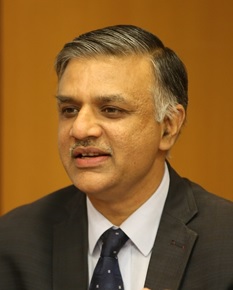
Bio: Prof. Sachin Chaturvedi is Director General at the Research and Information System for Developing Countries (RIS), a New Delhi-based policy research institute. He was Global Justice Fellow at the MacMillan Center for International Affairs at Yale University. He has done his Ph.D. in Economics. He works on issues related to development economics, involving development finance. He is also on the board of the Reserve Bank of India. He has authored/edited 10 books, apart from contributing chapters in edited volumes and publishing several research articles in various prestigious journals. He has served as a Visiting Professor at JNU. He had been a Developing Country Fellow at the University of Amsterdam (1996) and Visiting Fellow at the Institute of Advanced Studies, Shimla (2003), and Visiting Scholar at the German Development Institute (2007). He is also on the Editorial Advisory Board of IDS Bulletin, Sussex, UK.
Abstract:
The Future of BRICS: An Indian Perception
As the world is moving towards multi-polarity the role of BRICS and such other grouping seems to be vital for addressing intrinsic global challenges emanating out of impending global financial crisis, unfolding saga of climate change and rise in diffusion of technologies within the ambit of Industry 4.0. The trans-continental development initiatives being led by various objectives require a greater accountability and detailed discussion on the very conception, design and implementation of such projects. With some of the largest economies, BRICS would have to focus on enhancing capacities and skills with infrastructure that has low carbon footprints and promoting more cooperation at the level of people, rather than confining it to G2G cooperation. The future of BRICS would not only depend on the practical and strategic responses but also on how alternative global vision should be theorized and curated with empirical evidences.
Dr. Satu Limaye
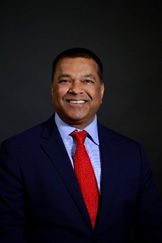
Bio: Dr. Satu Limaye is the Director of East West Center in Washington DC where he created and now directs the ‘Asia Matters for America’ initiative and edits the Asia Pacific Bulletin. He is also Senior Advisor, Center for Naval Analyses (CNA) and Senior Fellow on Asia History and Policy at the Foreign Policy Institute, Paul H. Nitze School of International Studies. He received his doctorate from Oxford University (Magdalen College) where he was a George C. Marshall Scholar. Dr. Limaye publishes and presents on a range of Indo-Pacific issues. Recent publications include: The Indian Ocean in Japan’s Free and Open Indo-Pacific Policies (forthcoming); The Twain Does Not Meet in United States-Russia Relations in East Asia (forthcoming); America’s 2016 Election Debate on Asia Policy and Asian Reactions (with Robert Sutter); The United States-Japan Alliance and Southeast Asia: Meeting Regional Demands; and Weighted West: The Indian Navy’s New Maritime Strategy, Capabilities, and Diplomacy.
Abstract:
The United States’ Indo-Pacific Policies Debate
There is an ongoing debate in the United States about America’s global role, including in the Indo-Pacific region. Simply put, the debate is between a policy favoring American primacy versus a policy that privileges a selective, restrained posture. The debate in the US about policy in Indo-Pacific is driven primarily by varying assessments about the challenge from China; that is, the American debate is driven more by assessment about hegemony as compared to multipolarism. Still, most American policy makers and experts acknowledge that Indo-Pacific has a more diffuse and distributed power structure including more active regional players such as Japan and India and of course a ‘risen’ China. Within this debate are questions about how to use long-standing policy ‘tools’ such as alliances, partnerships, forward military posture, commercial arrangements, multilateral organizations and other elements to achieve American objectives in an Indo-Pacific region characterized by a combination of potential hegemonic and multipolar features — but at a minimum by contestations regarding power, order and relations. This paper articulates some of the key features of this ongoing American debate; including what is new and what is not and the likely continuities and divergences of US policy in Indo-Pacific.
Prof. Sergey Lukonin

Bio: Prof. Sergey Lukonin is an expert on the economy of the Asia-Pacific region, China and the Russian Far East. He is currently the head, Sector of Economy and Politics of China at the Primakov Institute of World Economy and International Relations, Russian Academy of Sciences (IMEMO). He is also the member of the Academic Council of IMEMO. A PhD in world economy, Prof. Lukonin is a member of the expert council of the State Duma (Federal Assembly) Committee on Education and Science. He is also a Guest Professor at the School of Northeast Asian Studies, Shandong University, China.
Abstract:
The Eurasian Economic Union (EEU): Eurasian Order and Russia-China Relations
In general, the pace of development of the Eurasian Economic Union is quite high. The process of integration of the economies of the EEU states continues, the network of free trade agreements between the EEU and other states is expanding and the process of coordinating economic policies within the Union is gradually improving. The policy of creating the so-called Greater Eurasia on the basis of the EEU and other regional organizations, as well as through onnecting with the Chinese “One Belt, One Road,” is actively developing. Cooperation with China, both with the EEU as a whole and with individual states of the Union, is developing at a fast pace . However, there are a number of serious challenges in these processes. For example, there is still an insufficient degree of unity of economic policy within the EAEU, inconsistency of foreign policy actions of the Union states and a lack of a clear understanding of both what Greater Eurasia is and what economic principles it will be built on. In relations between Russia and China, there still remain subtle but quite important challenges. These challenges can significantly slow down both the pace of development of the EEU and the cooperation between Russia and China.
Amb. Shamsher Mubin Chowdhury
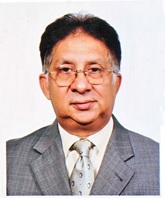
Bio: Amb. Shamsher Mubin Chowdhury, Bir Bikram, was the Foreign Secretary of Bangladesh from October 2001 to March 2005. After that, he served as the Ambassador of Bangladesh to the United States of America till April 2007. Amb. Chowdhury has also served as the High Commissioner of Bangladesh to Sri Lanka, Ambassador to the Federal Republic of Germany, and Ambassador to Vietnam. In 2004 the UN General Assembly elected Shamsher M. Chowdhury as a Commissioner of the UN International Civil Service Commission (ICSC) with the rank and status of a UN Under Secretary General. He served in the UNICSC until 2012. Prior to joining foreign service in 1974, Amb. Chowdhury graduated as a regular commissioned officer from the Pakistan Military Academy in 1969 and joined the 1st East Bengal Regiment. For his bravery and contribution in the battlefield during the Bangladesh War of Liberation, the Government of Bangladesh conferred upon him the gallantry award Bir Bikram.
Abstract:
Bangladesh and the Geo-Politics of Bay of Bengal
The fall of the Berlin Wall in early 1990s and the subsequent collapse of the Soviet Union, brought to an end the era of a bipolar world. This was commonly believed to be the advent of a unipolar and a peaceful world with the United States as the single world power. The period in which tectonic shifts were shaking Europe also marked the time when key countries in Asia were emerging as economic and military powers. Principal among them were China and India, and in a somewhat different way, Japan. This was clearly the emergence of a multi-polar Asia, spearheaded primarily by these three countries. Geographically, Bangladesh sits on the top of the Bay of Bengal and shares its maritime boundary with India on the West and Myanmar on the East. Bangladesh also shares its only land boundaries with these two neighbours. It is the combination of this location and its emergence as a responsible regional player that gives Bangladesh its geo-political relevance in the region. At the same time, this poses a challenge for the country as it strives to position itself in this evolving geo-political scenario. As a country located strategically and with its formidable economic progress and an enviable social stability, Bangladesh is well placed to play its due role in a multi-polar Asia.
Ms. Shebonti Ray Dadwal

Bio: Ms. Shebonti Ray Dadwal is a Senior Fellow with the IDSA, heading the Non-Traditional Security Centre at the Institute. Prior to that, she served as Deputy Secretary at the National Security Council Secretariat and was Senior Editor with The Financial Express. Her research focus is on Energy Security. She published her second book The Geopolitics of Gas: Common Problems, Disparate Strategies in 2017. Her other published works, apart from numerous research and peer-reviewed articles in journals, include a monograph on The Geopolitics of America’s Energy Independence: Implications for China, India and the Global Energy Market, her first book, Rethinking Energy Security in India, published in 2002, and two co-edited two books - Asian Strategic Review 2017: Energy Security in Times of Uncertainty(2018), and Non-Traditional Security Challenges in Asia: Approaches and Responses (2015). In April 2009, she was awarded a Chevening Fellowship by the Foreign and Commonwealth Office of the UK on completion of a course in Economics of Energy at the Institute for Energy Research and Policy, University of Birmingham, UK.
Abstract:
Energy Security and Development: India’s Balance between Priorities, Challenges and Opportunities
Energy security and economic security and development have a symbiotic relationship. Energy security has ramifications for a country’s external security as the defence forces are the largest consumers of energy. Therefore, a country’s economic status and security policies dictate its energy strategy and policy, while the energy market determines a country’s economic growth. Currently, India is poised to be the fastest growing energy consumer by 2035. According to the BP Energy Outlook 2017, India’s energy imports will rise by 138% and according to Niti Aayog’s 2017 Draft National Energy Policy, its share of import dependence vis-à-vis primary energy consumption could rise between 36-55% by 2040. Hence, a reduction of India’s energy import dependence is crucial for its energy security. This requires robust policies, investments, including in R&D, and a diversification of the energy mix. As a leading party to the Paris Agreement, the Indian government has a strong mandate to shift towards sustainable energy resources. Moreover, as a rising heavyweight on the energy scene, the policies adopted by India will influence the global energy markets. Hence, it is imperative that India claims a seat for itself at the table of rule-setters for energy policy. This paper attempts to highlight the priorities, challenges and opportunities for India’s energy security and the role it should play in ensuring a sustainable energy mix from a national, regional and global perspective.
Prof. Shen Dingli

Bio: Prof. Shen Dingli is a professor of Institute of International Studies at Fudan University. He is also an Honorary Visiting Professor at Washington University in St. Louis. He has taught international security, China-US relations, China’s foreign and defence policy in China and abroad. His research and publication covers China-US security relations, regional security and international strategy, arms control and non-proliferation, foreign/defence policy of China and the US etc. He is Vice President of Chinese Association of South Asian Studies, and Shanghai Association of International Strategic Studies. He received his Ph.D. in physics from Fudan in 1989 and did post-doc in arms control at Princeton University from 1989-1991. He was an Eisenhower Fellow in 1996, and advised in 2002 the then UN Secretary General Kofi Annan for his strategic planning of second term. He is on the Global Council of the Asia Society. He has co-edited 17 books and published over 2,500 papers and articles worldwide.
Abstract:
China’s Vision of Asia
China’s vision of Asia is composed of at least three elements. First of all, Asia’s collective rise shall promise this multi-cultural continent a peaceful and prosperous land for unity and integration, enhancing its overall competence given the rise of globalization. This would be especially important as a rising Asia is contributing more to the global growth and performance. Next, China aspires to see a region-specific norm and rule-based approach towards advancing Asia’s peaceful rise, building upon the existing global institutions which emerged since the end of WWII. This also raises the question as to how to devise regional economic and security paradigms applicable to this culturally rich but diversified region. Finally, China has envisaged an Asia which is open and engaging with the rest of world to achieve mutual benefits. While welcoming external players to continue to play their positive role in the region, China would encourage major members of Asia to take leadership so as to prepare for the arrival of the Asian Century.
Prof. Shuhfan Ding

Bio: Prof. Shuhfan Ding is a Professor Emeritus of National Chengchi University (NCCU) in Taipei. He also teaches part time at NCCU and Taiwan’s National Defense University. His research focuses on China’s security and defense policy, including civil/party-military relations, defense strategy, defense industry, and arms control. He received his B.A. in Anthropology from the National Taiwan University, and his Ph.D. in Political Science from the University Of Notre Dame.
Abstract:
The US, China and the Asian Security Order by 2025: A Taiwanese Perspective
Since the late 1990s, expectations regarding the coming of the Asian Century have been gaining ground. Many countries have striven to play proactive roles in the context of a declining US and a growing China with a hope of shaping an environment conducive to their development and security. Many new multilateral institutions at the regional and sub-regional levels have been developed in Asia to ensure continuing prosperity and stability, and Asia has become the center of gravity of the world politics. Nevertheless, the premise for the Asian Century has changed now as US-China relations, featured by the on-going trade war, have shifted from engagement to sheer competition. This competition complicates the process of the expected and desired Asian Century, because the competition can either benefit Asian countries except China, or force Asian countries to choose sides between the US and China. With regard to Taiwan-China relations, the outcome of the 2020 presidential election in Taiwan will serve as a watershed between turbulence and stability in the Taiwan Strait.
Lt Gen SL Narasimhan
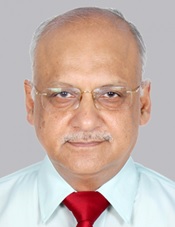
Bio: Lt Gen SL Narasimhan, PVSM, AVSM*, VSM is an Infantry Officer commissioned in 1977. Narasimhan has seen action in OP PAWAN in 1987 in Sri Lanka and has a vast experience in Counter Insurgency Operations, Line of Actual Control and High Altitude Area environment. He has been awarded four times for his outstanding contribution to the Indian Army by the President of India. Narasimhan served as the Defence Attaché in the Embassy of India in China for three years. He is qualified in Chinese language. His expertise spans both international relations and internal issues of China. Narasimhan has taken part in many Track 2 dialogues both in India and abroad. He has also authored many articles in various journals and magazines. He is, presently, Member of the National Security Advisory Board, India and Director General, Centre for Contemporary China Studies. He is also a Distinguished Fellow with Centre for Air Power Studies, India.
Abstract:
India China Boundary Question: An Indian Perspective
The India China Boundary question is a long standing one. It is not just a bilateral issue since it also involves other countries. The claims from China have been changing too. Lack of clarification of Line of Actual Control gives rise to a number of face-offs and keeps the border issue alive. Moreover, there is a tendency by the media on both sides to play up this issue. All these make India China border dispute a very complex one. While efforts have been made to resolve this issue, the problem persists. Nonetheless, It is to the credit of both the countries and their armed forces that there has been no firing across the border for about 52 years.
However, how should we look ahead from now? The first step should be to adhere to all the provisions accepted in the various agreements in letter and spirit. Secondly, the mutually accepted standard operating procedures need to be followed strictly. Thirdly, we need to get the LAC clarified. Fourthly, we need to negotiate on the alignment of the boundary and demarcate it on the ground. The first three points are achievable and if done, will keep the border peace and tranquil and create favourable conditions for progress. The fourth one is complex and will take some more time and effort.
Prof. Swaran Singh

Bio: Dr Swaran Singh is professor for Diplomacy and Disarmament at School of International Studies, Jawaharlal Nehru University, New Delhi. He is formerly of the Institute for Defence Studies and Analysis (1992-2001) and currently Senior Fellow, Institute for National Security Studies Sri Lanka (Colombo), Adjunct Senior Fellow, The Charhar Institute (Beijing), Member Advisory Board, Communities Without Borders (Atlanta), Visiting Professor with China West Normal University (NanChong) and Research Institute for Indian Ocean Economies (Kunming). He is formerly visiting professor of Australian National University (Canberra), Science Po (Bordeaux), University of Philippines (Manila), Hiroshima, Kyoto and Chuo universities of Japan and Beijing, Fudan, Xiamen universities and Shanghai Institute for International Studies of China as also guest faculty at Stockholm International Peace Research Institute. Prof Singh has published 14 books, 8 monographs and scores of chapter and journal articles. He regularly contributes and speaks to media and lectures at defence and foreign policy institutions.
Abstract:
From Alliances to Networks: Managing India's Security Challenges in the India Ocean Region
Mechanisation and rising levels of consumption have goaded human explorations from continents to oceans. This has witnessed a drift from naval commands, naval bases and hub-and-spokes strategies giving way to multilateralism involving interest based partnerships and sector-wise networks. As the gravitation point of global geopolitics shifts from North Atlantic to the Indo-Pacific, the Indian Ocean littoral seems jump frogging to adopt new conceptions where security and development have been intermeshed and optimal strategies focus more on management rather than seeking final solutions to their complex intersubjective contestations.
Gravitas of expanding Indian Ocean economies that make it the busiest of all world oceans has experienced rise of new security threats and new security arrangements involving dynamic new alignments between old and new stakeholders. India, Japan, China for instance have been doing joint patrolling in Gulf of Aden to address the scourge of piracy since early 2007. Of these new players, China's unprecedented rise is sought to be managed through its engagement with regional networks like the Indian Ocean Rim Association. Traditional players like the United States, Russia, France are also refurnishing their alignments with local powers. In this light, it is interesting to see how India is recalibrating its Indian Ocean strategies reflected in new multilateral initiatives like SAGAR, AAGC, IONS as also its new partnerships with Oman, Iran, Mauritius, the Maldives and Malaysia.
Dr. Tomoo Kikuchi

Bio: Dr. Tomoo Kikuchi is a visiting Senior Fellow at the S. Rajaratnam School of International Studies, Nanyang Technological University, Singapore. He was a Senior Research Fellow at the Lee Kuan Yew School of Public Policy and an Assistant Professor of Economics at the National University of Singapore. He studied in Japan, Germany and the UK, and obtained his PhD in Economics from Bielefeld University in Germany. His research areas are international economics, economic growth and macroeconomics. He has published over ten articles in leading economics journals including Journal of Economic Theory, Journal of Economic Dynamics and Control, and Theoretical Economics. He is an Associate Editor of Journal of Asian Economics. He regularly contributes op-eds in newspapers such as The Straits Times and The Nikkei Asian Review. His latest edited book is China and Japan in the Global Economy (Routledge Studies in the Modern World Economy, 2018).
Abstract:
RCEP and Indo-Pacific Economic Integration.
This paper aims to examine two aspects of the implication of Regional Comprehensive Economic Partnership (RCEP): on the world trading systems and on the Indo-Pacific economic integration. First, the wave of populism and political backlash against globalization poses unprecedented challenges to the world trading systems. RCEP now has strategic importance in order to fight against protectionism and promote the liberal trading systems. Second, this region has a huge economic potential. RCEP member countries in total account for nearly half the world’s population and around 30% of the world’s GDP. It also covers "factory Asia’s" supply-chains. Moreover, the Indo-Pacific is emerging as a new regional concept encompassing regions from East Asia, through Southeast Asia, South Asia, and Western Asia, to Africa. China`s Belt and Road Initiative and the Indo-Pacific strategy aim to improve connectivity and promote trade and investment in these regions by investing in infrastructure, transportation and energy sectors. The RCEP negotiations are complementary to these initiatives that seek to support regional integration. However, the economic potential of the Indo-Pacific is not fully understood. The paper uses a computable general equilibrium model to simulate the economic impact of RCEP on the Indo-Pacific regional integration by 2030.
Ms. Valeriia O. Gorbacheva

Bio: Ms. Valeriia O. Gorbacheva is the GR-Director of the Russian National Committee on BRICS Research. Before this, she was the Adviser to the Executive Director, Russian National Committee on BRICS Research. Her research interests include International relations, world politics, international security, global governance, world economy, public diplomacy, “soft power,” BRICS countries, South-South cooperation etc. In 2015 she was the Manager at the Russkiy Mir (Russian World) Foundation and also an Expert at the Russian National Committee on BRICS Research. Ms. Gorbacheva was a PhD candidate at the World Economy Department at the Institute of Economy of the Russian Academy of Science from September 2014 - May 2018. She has attended several workshops such as the CSCAP Workshop for the Asia Pacific Young Scholars and the 17th PIR Center International School on Global Security for Young Specialists, and has several publications to her name.
Abstract:
Russia’s Vision of an Asian Security Order
In the context of strengthening the interconnectedness of the various territories of the world, including the Eurasian space, the task of defining the Asia-Pacific region as an aggregate of geographical, political, economic territories and regions became urgent. This makes it possible to avoid politisized pseudo-scientific generalizations (such as Indo-Pacific) and to determine the perspective. It is important to formulate the theoretical foundations of international relations in Asian politics in the modern era and the participation of external strategic entities of the Asia-Pacific region; to present a reasoned criticism of Euro-oriented IR-theories. Up to this day, the issue of geopolitical configurations in Asia is still not clear and the definitions of the area in question is not fully agreed on. Especially due to the recent increased spread of the different new concepts what is implied by Asia in geopolitics is far from clear. These kinds of geopolitical constructs in fact dilute the real problems of regional connectivity, joint efforts, and common regional fate. Therefore the need is obvious to suggest a concept of clear division within the geographical limits of Asia and the Pacific and differentiate the political strategies of other geopolitical actors towards each area.
Prof. Varun Sahni

Bio: Prof. Varun Sahni is Vice-Chancellor, Goa University and Professor in International Politics at Jawaharlal Nehru University, New Delhi (currently on deputation leave). He speaks annually (since 2006) at National Defence College (NDC), New Delhi. He has been a Jury Member of the Jawaharlal Nehru Award for International Understanding. An Inlaks Scholar, he wrote his doctoral dissertation on the political role of the Argentine Navy at the University of Oxford (1991). He has written 105 research articles on nuclear deterrence issues, regional security, emerging balances in the Asia-Pacific, evolving security concepts, emerging powers, international relations theory and Latin American issues. He has been visiting professor at important universities in Mexico City, Washington, DC and Canberra. For his “outstanding contribution to research and teaching”, he was conferred the V.K.R.V. Rao Prize in Social Sciences for 2006 by the Indian Council of Social Science Research.
Abstract:
Multipolarity and Power Transitions: Historical Patterns and the Future of the Indo-Pacific
As the geopolitical contours of the Indo-Pacific region slowly but surely take shape, their future configuration will depend to a significant extent upon the relative capabilities and mutual relations of the principal powers in the region. While there exists a strong temptation to study power transitions and ‘learn from history’, historical patterns might not be the best guide for future developments. Unpredictability flows in part from the undeterminable impact of contemporary ‘great disruptors’, whether technological (electricity storage, artificial intelligence), ecological (the navigable Arctic) or social (new networks of finance, production and exchange). Moreover, past patterns do not correspond to the current situation in three concrete aspects. In the past, new great powers (Japan, USSR) rose in the crucible of war; today, military technology (nuclear deterrence) makes great power war extremely unlikely. Secondly, the last hegemon to decline (UK) engineered a hegemonic transition in favour of its successor (USA), thereby securing its long-term interests, an instance of strategic confidence that is wholly missing in the US-PRC relationship. Finally, the current power transition requires the systemic hegemon to cede space to a single systemic rival, unlike the two previous cases, France (1660-1713) and UK (1860-1910), when systemic hegemony was replaced by a multipolar system.
Dr. Zeng Xiangyu
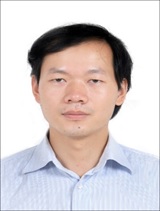
Bio: Dr. Zeng Xiangyu is an Associate Professor and Research/International Coordinator at the Institute of South Asian Studies, Sichuan University, Chengdu, Sichuan, China. With a special interest in Indian/Pakistani/Afghan studies, Dr. Zeng is at present in charge of a national social sciences program: Maritime Security Strategy of India: Implications to China. He was a visiting scholar in Pakistan, India and University of Macau in middle 2011, early 2014 and early 2016 respectively. Dr. Zeng is the sole-author of Pakistan's Foreign Policy: 1980-1992 (Chengdu: 2011), chief translator of Afghanistan and Pakistan: Conflict, Extremism, and Resistance to Modernity (Beijing: 2014) and China and India in Indo-Pacific: Some Indian Perspectives (Beiijng: 2018), first-author of Non-Conventional Security and Sustainable Development: A Study on Water and Energy Security in India (Beijing: 2017) and editor for A Survey on Think Tanks in South Asia (4 Volumes) (Beijing: 2018-2019). He also co-authored Afghanistan: Stability and Reconstruction in Post-Conflict Era (Beijing: 2015) and RSS: A Research (Chengdu: 2018).
Abstract:
The Indo-Pacific: China's Perception
The recent resurfacing of the Indo-Pacific concept and the Quad has led to a great interest and discussion among academicians and policy-makers. The ‘Indo-Pacific’ appears to be different from the decades-old ‘Asia-Pacific’ as it shifts/expands the strategic focus southward and westward from Eastern Asian littorals to the Pacific to littoral region covering West Pacific and Indian Ocean. However, it might be more pragmatic to regard the relations between the two as that of predecessor and successor rather than between two concepts un-related to each other. However, Indo-Pacific as a policy is vague and fragmented. As a strategy, the Indo-Pacific is even less relevant as some available analysis might suffer from over-conceptualization and over-systemization. There are a lot of differing interpretations on Indo-Pacific’s geographical coverage and other major features, which might result in different responses, thereby impacting the regional situation. Chinese observers are concerned about the development and are trying to evaluate the situation and future scenario in a prudent way. A comprehensive response will be made based on the evaluation and ground reality. This paper attempts to analyze the Quad with a special focus on its potential impact on China. An exploration of possible policy responses from China will also be done.
Prof. Zhang Jiadong

Bio: Prof. Zhang Jiadong is the Director of Center for South Asia Studies at Fudan University in Shanghai, China. He is also a professor of international relations and a senior researcher in Center for American Studies at the University. He is a former diplomat who has served in China’s Embassy in India (2013-2015). His areas of research and teaching are broad, covering China-India-America relations, South Asian issues, and anti-terrorism.
Abstract:
India-China Boundary Question: The Way Ahead
The border dispute between China and India is one of the longest-running and largest territorial disputes in the world. It is the most acute, sensitive and complex issue between China and India. In the past, border disputes were mainly a bilateral issue between China and India, with limited regional and international influence. Both countries have traditionally adopted a passive security orientation over border disputes aiming at avoiding accidents. There is a dual-track policy that separates border disputes from the development of China-India relations. But now, with the simultaneous development of China and India and the rise of Asia, border disputes have increasingly become an important factor affecting the situation in Asia and international relations. The border dispute affects the normalization of China-India relations and hinders the sustainable improvement of the international status of the two countries and the growth of national strength. The disputes also affect the way other major powers interact with China and India, making the divide-and-rule strategy of these major powers often succeed, affecting the security pattern of Asia. In this context, it is necessary and also possible for two countries to transform the traditional passive security orientation into a positive one; with some positive factors having emerged that will facilitate handling of the border dispute in a more constructive manner.
Prof. Zhang Zhenjiang

Bio: Prof. Zhang Zhenjiang is a full Professor of International Relations in Jinan University, Guangzhou, China. He is currently the Dean of the School of International Studies and the Institute for 21st Century Silk Road Studies. Also, he is the Director of Academy of Overseas Chinese Studies and the Journal of Southeast Asian Studies. Prof. Zhang’s research interests include history and theory of international relations, American diplomatic history, East Asian international relations, and translational migration and international relations, etc.
Abstract:
Free-Trade Area of the Asia-Pacific (FTAAP) and China’s Approach to Regionalism
Using the Free-Trade Area of the Asia-Pacific (FTAAP) as a case study, this paper examines China’s policies and approaches towards economic regionalism in the past 40 years, beginning in the Reform and Opening-Up period in the late 1970s. The aim is to provide an overview and analysis of China’s changing attitudes towards economic regionalization, which were influenced by its own developmental strategy and the global processes as well. First, it briefly reviews the origin, development, and agreements and disagreements of proposals from different countries in the past two decades. Second, the paper focuses on China’s changing attitudes and policies toward the FTAAP, from opposing it at the beginning when the US first proposed it to being a strong supporter of it now. Third, it compares China’s responses to the FTAAP with the country’s own efforts towards economic regionalization. And, the paper concludes with some interpretations on China’s changing policies and approaches towards economic regionalism.
